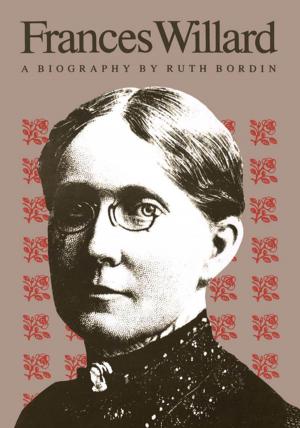Early Detection
Women, Cancer, and Awareness Campaigns in the Twentieth-Century United States
Nonfiction, Health & Well Being, Medical, Reference, History, Health, Ailments & Diseases, Cancer, Social & Cultural Studies, Social Science, Gender Studies, Women&| Author: | Kirsten E. Gardner | ISBN: | 9780807877128 |
| Publisher: | The University of North Carolina Press | Publication: | December 8, 2006 |
| Imprint: | The University of North Carolina Press | Language: | English |
| Author: | Kirsten E. Gardner |
| ISBN: | 9780807877128 |
| Publisher: | The University of North Carolina Press |
| Publication: | December 8, 2006 |
| Imprint: | The University of North Carolina Press |
| Language: | English |
Dispelling the common notion that American women became activists in the fight against female cancer only after the 1970s, Kirsten E. Gardner traces women's cancer education campaigns back to the early twentieth century. Focusing on breast cancer, but using research on cervical, ovarian, and uterine cancers as well, Gardner's examination of films, publications, health fairs, and archival materials shows that women have promoted early cancer detection since the inception of the American Society for the Control of Cancer in 1913. While informing female audiences about cancer risks, these early activists also laid the groundwork for the political advocacy and patient empowerment movements of recent decades.
By the 1930s there were 300,000 members of the Women's Field Army working together with women's clubs. They held explicit discussions about the risks, detection, and incidence of cancer and, by mid-century, were offering advice about routine breast self-exams and annual Pap smears. The feminist health movement of the 1970s, Gardner explains, heralded a departure for female involvement in women's health activism. As before, women encouraged early detection, but they simultaneously demanded increased attention to gender and medical research, patient experiences, and causal factors. Our understanding of today's vibrant feminist health movement is enriched by Gardner's work recognizing women's roles in grassroots educational programs throughout the twentieth century and their creation of supportive networks that endure today.
Dispelling the common notion that American women became activists in the fight against female cancer only after the 1970s, Kirsten E. Gardner traces women's cancer education campaigns back to the early twentieth century. Focusing on breast cancer, but using research on cervical, ovarian, and uterine cancers as well, Gardner's examination of films, publications, health fairs, and archival materials shows that women have promoted early cancer detection since the inception of the American Society for the Control of Cancer in 1913. While informing female audiences about cancer risks, these early activists also laid the groundwork for the political advocacy and patient empowerment movements of recent decades.
By the 1930s there were 300,000 members of the Women's Field Army working together with women's clubs. They held explicit discussions about the risks, detection, and incidence of cancer and, by mid-century, were offering advice about routine breast self-exams and annual Pap smears. The feminist health movement of the 1970s, Gardner explains, heralded a departure for female involvement in women's health activism. As before, women encouraged early detection, but they simultaneously demanded increased attention to gender and medical research, patient experiences, and causal factors. Our understanding of today's vibrant feminist health movement is enriched by Gardner's work recognizing women's roles in grassroots educational programs throughout the twentieth century and their creation of supportive networks that endure today.















